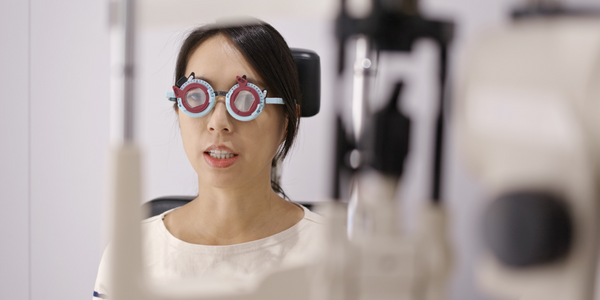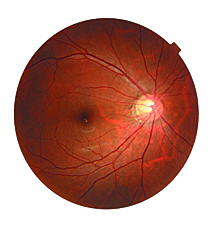myopia
People with nearsightedness generally cannot see distant objects clearly. When the length of the eye increases, it is called axial myopia. Myopia is influenced by genetics and environment. If the parents are short-sighted, the child may be short-sighted at a younger age. In addition, constant reading and the use of electronic devices at close distance can cause eye fatigue and accelerate the development of myopia.
When young children sometimes cannot relax their eyes, a difference in focal length occurs, resulting in pseudo myopia. To check for pseudo myopia, we need to do a dilated eye exam. Myopia increases rapidly from primary to secondary school. Once the length of the eye increases, myopia will increase, in which cannot be reversed because it is a nature of growth. Eye growth is like blowing up a balloon, the material of the balloon will be thinned. As the eye grows, the retina inside the eye becomes relatively thinner, so the chance of retinal detachment/mutation increases. So we need to control myopia.
Hyperopia
People with farsightedness generally cannot ee things at close distance. Most babies or kids suffer from farsightedness. The amount of farsightedness will reduce as they grow up. Eventually myopia will be developed. When a kid suffer from heavy farsightedness without correction, they ,may have amblyopia/ lazy eye/ esotropia; Adults will experience eye fatigue and various discomforts due to adjustment problems.
Astigmatism
Astigmatism generally sees double images or is blurred at all distance. Astigmatism can occur at any age. It will be worsened with rubbing eyes.
Presbyopia (additional degrees)
People will experience raeding problem when they are approaching 40 years old. The focusing muscles are weakened, so we cannot focus very well at near. THe focusing problem can be served with appropriate lens power.By age 60, presbyopia will stabilize.
Retinal detachment
Retinal detachment is hightly related to myopia. It can be detacted and treated earlier by regular eye exam. If retinal detachment occurs, the patient will suddenly see lots of floaters or flashes (because of irritation on nerves), or even see gauze fall (because of retinal detachment).





